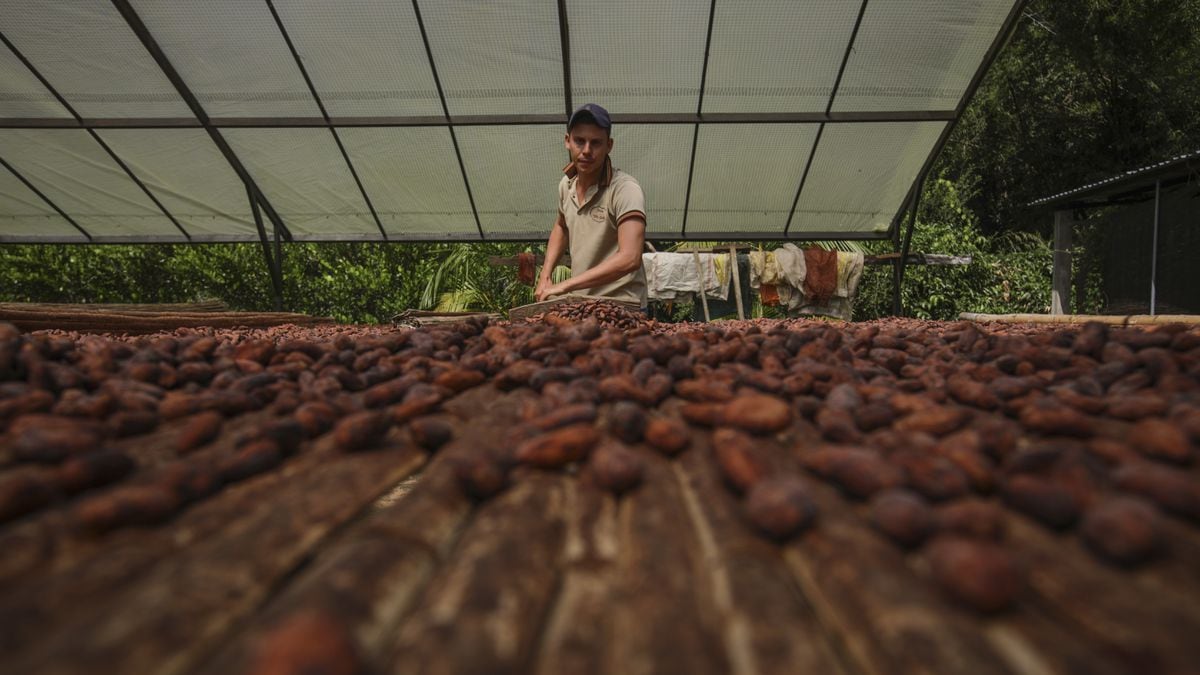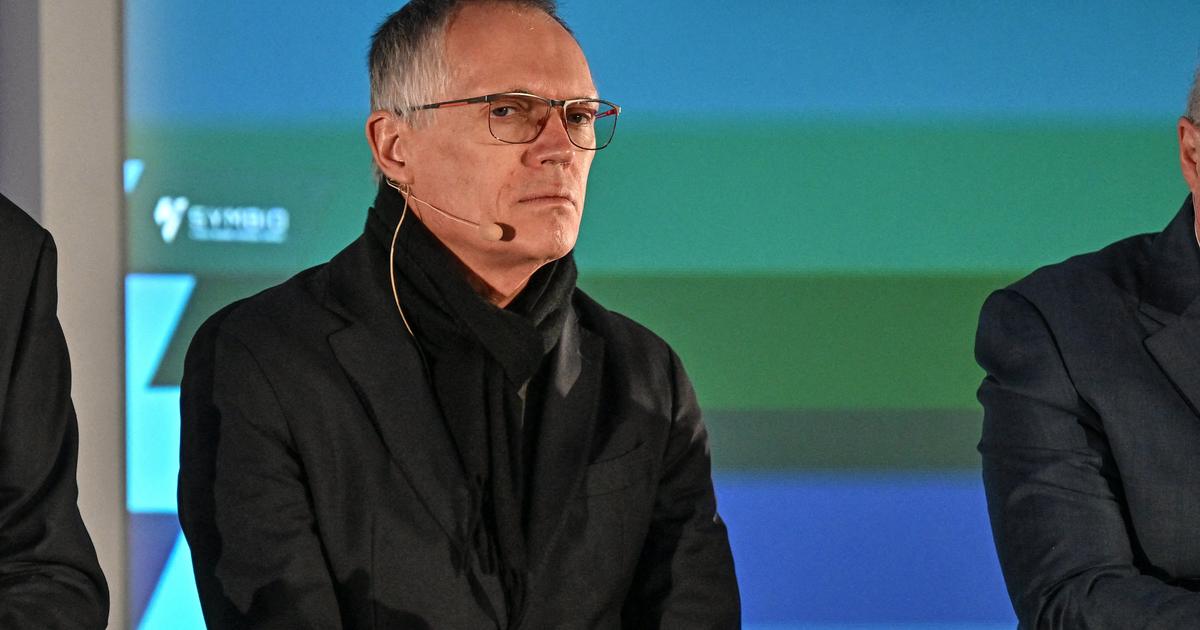Enlarge image
75 percent of cocoa farmers do not earn a living income
Photo: Diego Herculano / dpa
The pandemic has so far done little harm to chocolate production.
After declines at the beginning of 2020, it rose by around four percent worldwide this year and, according to information from the ICCO, is almost back to the level before the crisis.
The chocolate manufacturers' sales also recovered.
The world's largest producer, the Belgian-Swiss company Barry Callebaut, reported an increase of 4.6 percent.
But despite the increasing demand, cocoa prices fell - and with them the income of cocoa farmers.
Every year chocolate products are sold worldwide for an estimated 122 billion euros, only about 7.3 percent of which goes to farmers.
In October, the cocoa price in West Africa fell by 18.5 percent.
To make a living, it should actually be 50 percent higher.
The "Cacao Barometer", the trend report by the association of non-governmental organizations and trade unions on the cocoa market based in the Netherlands, predicts that prices will continue to fall and poverty will increase.
Fairtrade share in Germany at 17 percent
"The conventional aid programs do not help," says the scientist Yuca Waarts from the agricultural university Wageningen of the news agency dpa. She is the author of a new study on cocoa farmers' incomes.
More than 60 percent of the total cocoa production of almost five million tons per year comes from the West African countries Ghana and the Ivory Coast. But 75 percent of cocoa farmers in these countries do not earn a living income. That means: not enough for food, housing, education and health.
Too small fields, too little yield
Cocoa production has more than doubled in the past 30 years.
Overproduction, according to Waarts, reduced prices and incomes.
But just increasing prices would not help.
The governments of Ivory Coast and Ghana are already paying the farmers a supplement to secure their income.
And even if the prices were doubled, only about 41 percent of farmers would earn enough to send their children to school, for example.
Many farmers have fields that are too small and too little yield, says Waarts.
Fairtrade producers pay their farmers a reasonable price.
But that only helps those who have enough acreage.
And the fair trade share in world trade is still small, in Germany it is around 17 percent.
"Increasing the market price is only part of the solution," says Waarts.
The market must be regulated.
The example of oil production is obvious - a kind of cocoa opec, where production and price are regulated.
The acreage had to be big enough and there had to be a social safety net.
apr / dpa






/cloudfront-eu-central-1.images.arcpublishing.com/prisa/DIAGMBIFCBFTJADD5SB7GXXY2A.jpg)


/cloudfront-eu-central-1.images.arcpublishing.com/prisa/7FWSL2MJ4FD5TOM366ZNU2RLTU.jpg)

